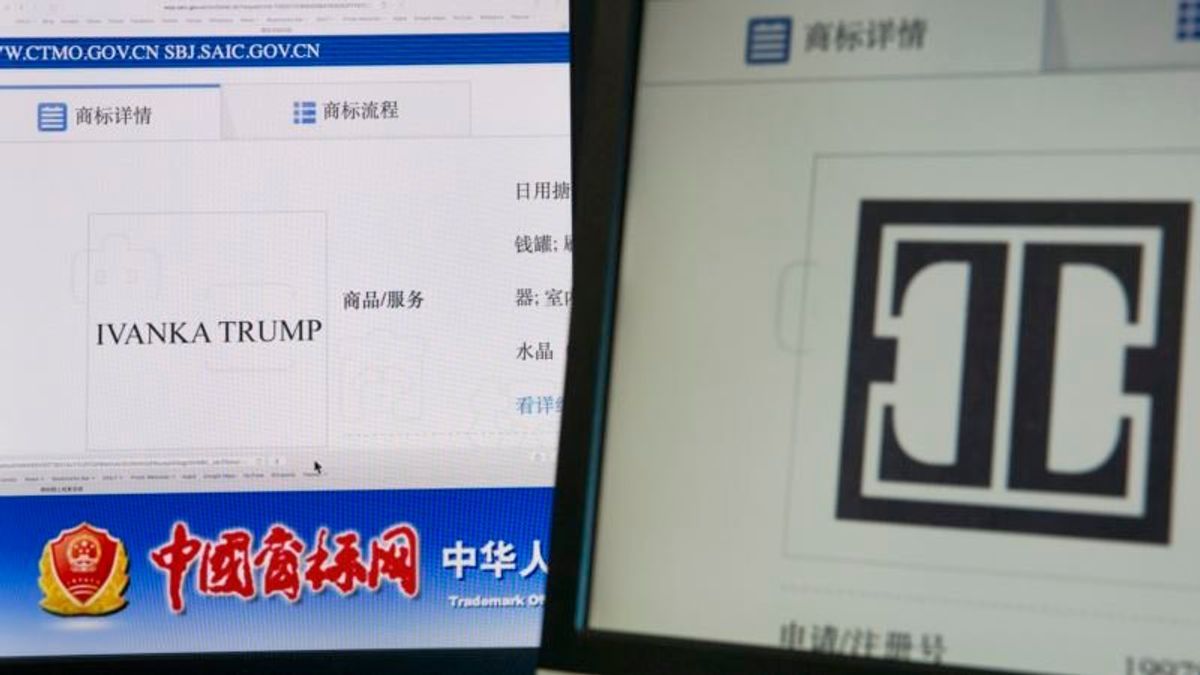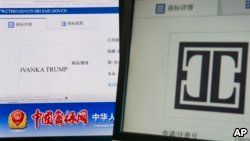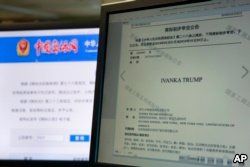
Ivanka Trump Quits Conference Call After Inquiry About Her China Business Interests
Ivanka Trump Quits Conference Call After Inquiry About Her China Business Interests

WHITE HOUSE —
U.S. President Donald Trump's daughter and adviser Ivanka Trump abruptly left a White House conference call Tuesday evening after reporters asked about her business interests in China.
The White House intended for reporters to ask questions about her role in "White House Sports and Fitness Day," however, as is customary on such calls, reporters instead took the opportunity to ask Trump about other issues in the news.
The Chinese government granted the Ivanka Trump brand seven trademark approvals in May, which have revived questions over whether foreign governments are trying to curry favor with the administration through Trump family businesses.
During Tuesday's Q&A session, the first question was from a reporter who asked her to address trademarks being awarded to her brand in China.
After a long silence, the host of the conference call, White House assistant press secretary Ninio Fetalvo, told the reporter: "You can refer those questions to the press office."
After the exchange, Fetalvo told reporters the first daughter has "stepped out for another meeting," despite telling them at the beginning of the call that Trump "will stay for a few questions before heading to another meeting."
In May, Trump received seven trademark approvals from the Chinese government on various items, including bath mats, wallpaper, textiles and baby blankets.

In the past three months, according to media reports, China has granted Trump's fashion brand a total of 13 trademarks, and her company has received provisional approval for another eight trademarks.
U.S. government officials are prohibited from using their public office for private gain, which is why Trump stepped away from her day-to-day role in the company. But she continues to receive profits from the business, according to ethics watchdog Citizens for Responsibility and Ethics in Washington.
Critics have raised concerns over the timing of the Chinese approvals, and whether they influenced the administration's controversial decision to spare Chinese telecommunications company ZTE from penalties that China said would put it out of business.
In April, the U.S. Commerce Department found that ZTE failed to comply with an agreement reached after ZTE was caught breaching U.S. sanctions on Iran and North Korea.
This is not the first time President Trump and his family's business connections in China have raised issues of conflict of interests by critics. Last year, Ivanka Trump's sister-in-law, Nicole Kushner Meyer, told a group of wealthy Chinese investors in Beijing to consider investing $500,000 in a New Jersey luxury apartment building being built by the Kushner companies and it would help them secure an investor visa to immigrate to the United States.
Tags
US Politics Ross: US-EU Trade Deal Could be ReachedNext PostTrump Gives Terminal Patients ‘Right to Try’ Experimental Drugs
Ross: US-EU Trade Deal Could be ReachedNext PostTrump Gives Terminal Patients ‘Right to Try’ Experimental Drugs







